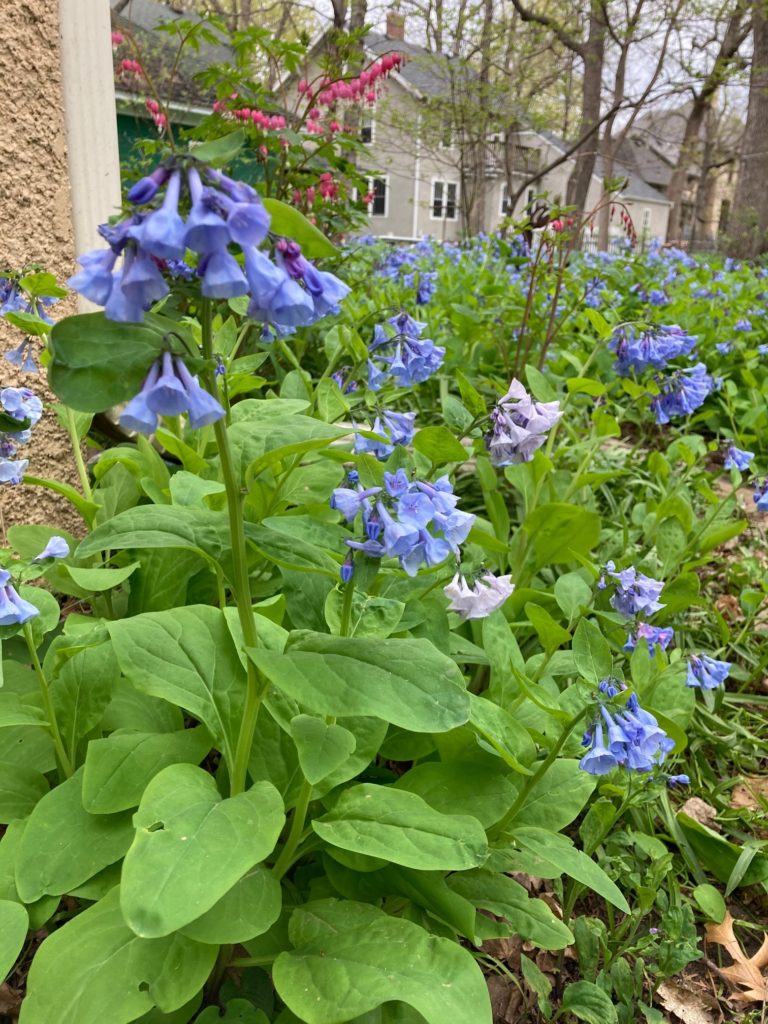
Postcard: Mother’s Day, 2021



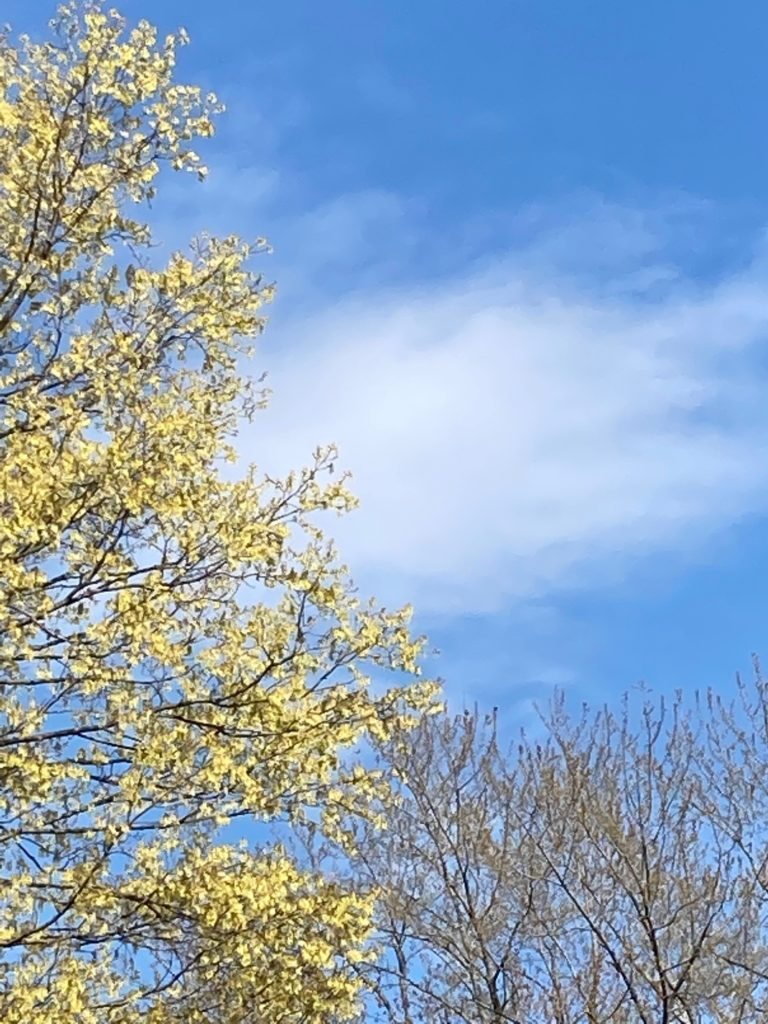
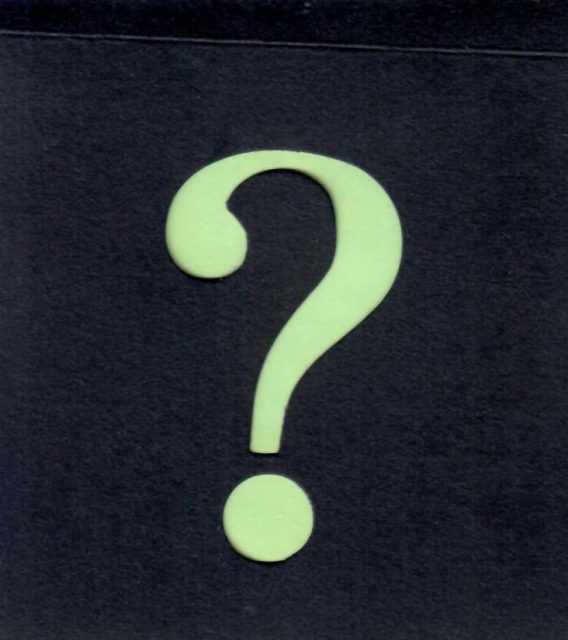
Context for Poem “Wondering… “:
Have you ever felt frustrated by the need to check just one answer when the truth is more complicated? If so, you will resonate with this usual and beautifully written article by a young scientist, Ariana Remmel, published in the young digital magazine, Catapult. Reading it this morning was the catalyst for my poem today. The article can be found through the link below.
Why should we need to choose between science and art? Prose or poetry? Sunlight, lamplight, moonlight, insight? Why not claim it all?
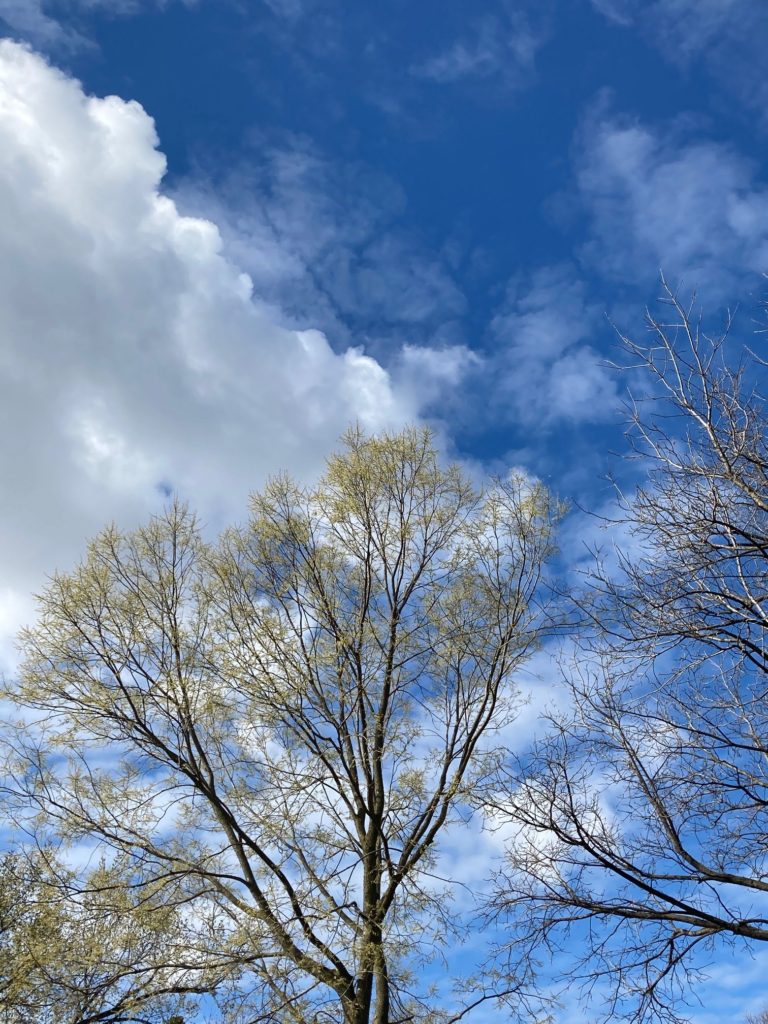
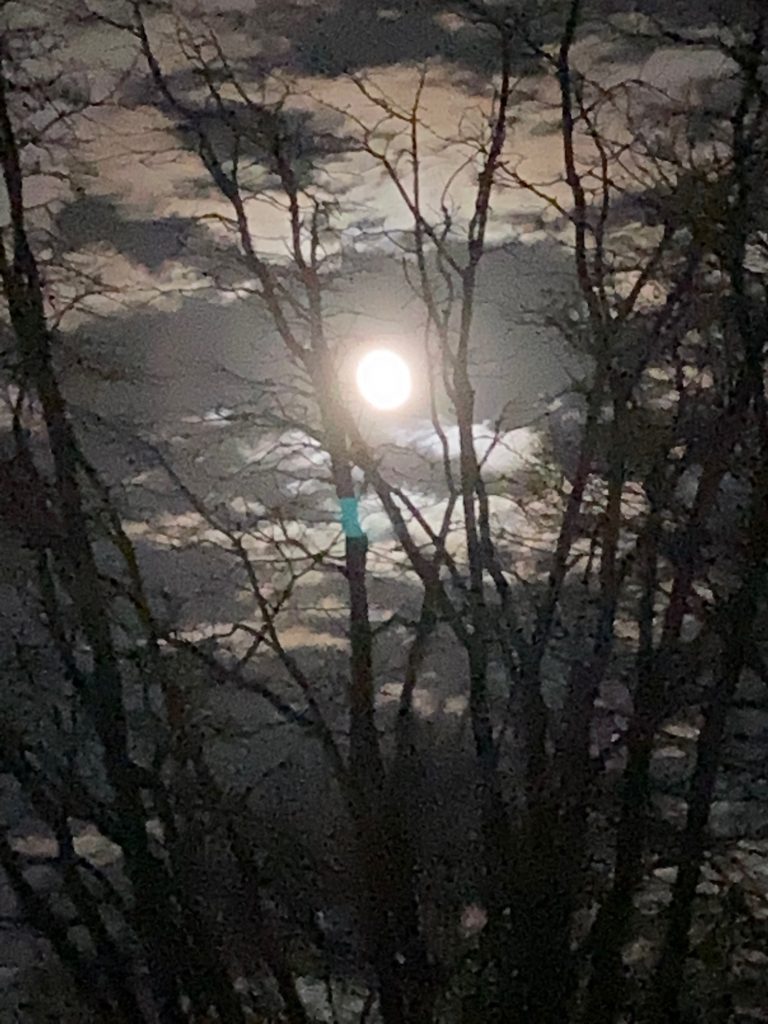
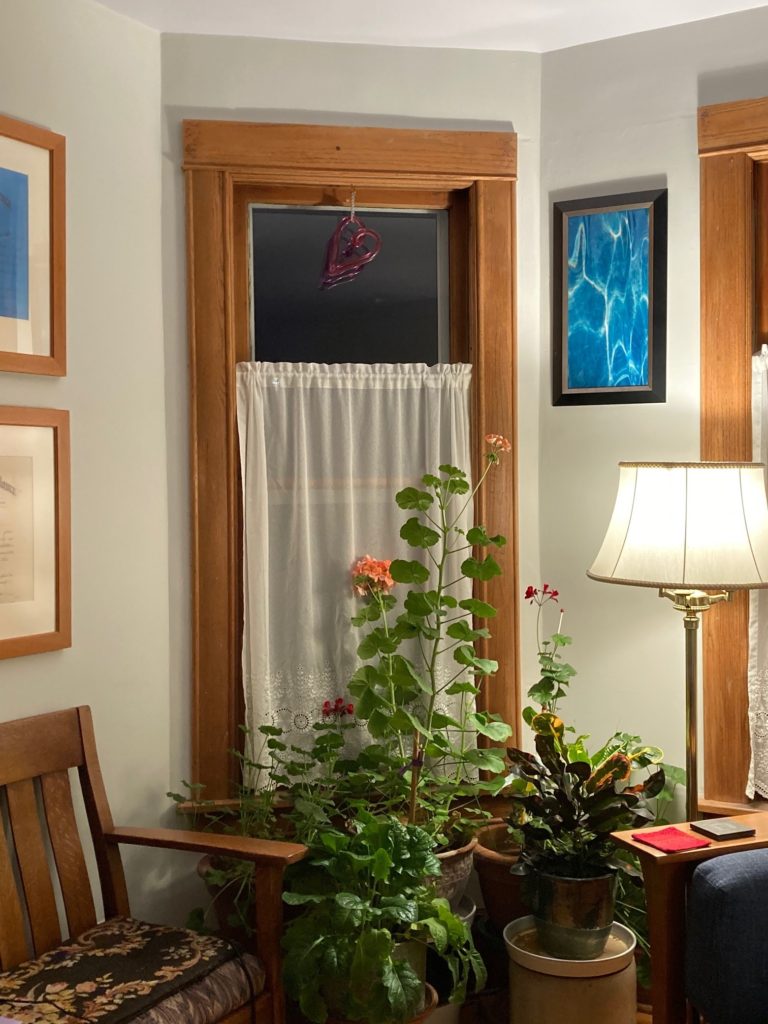
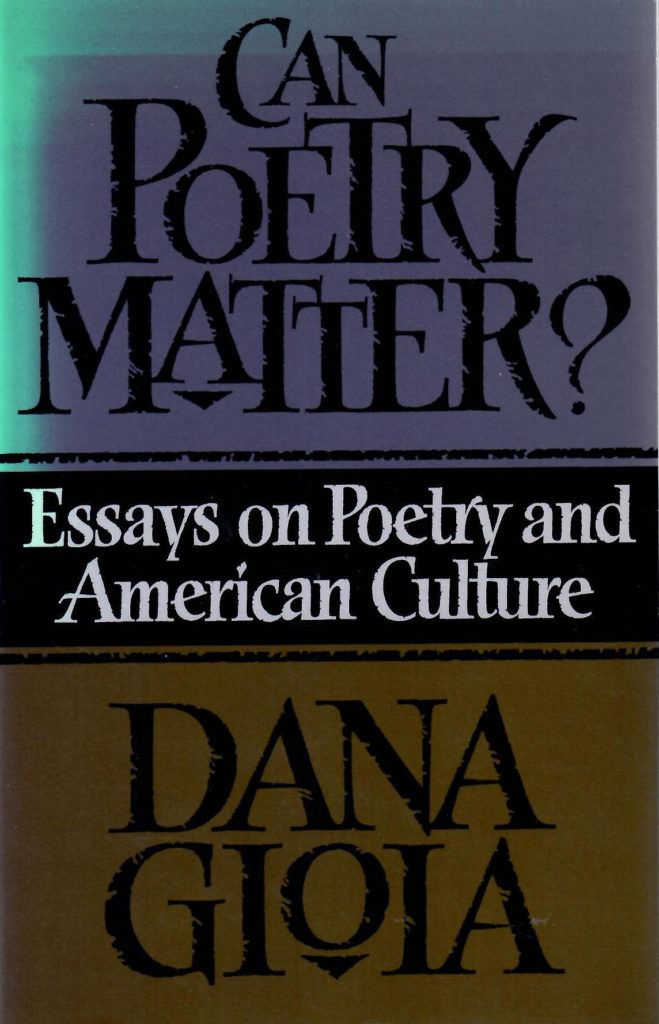
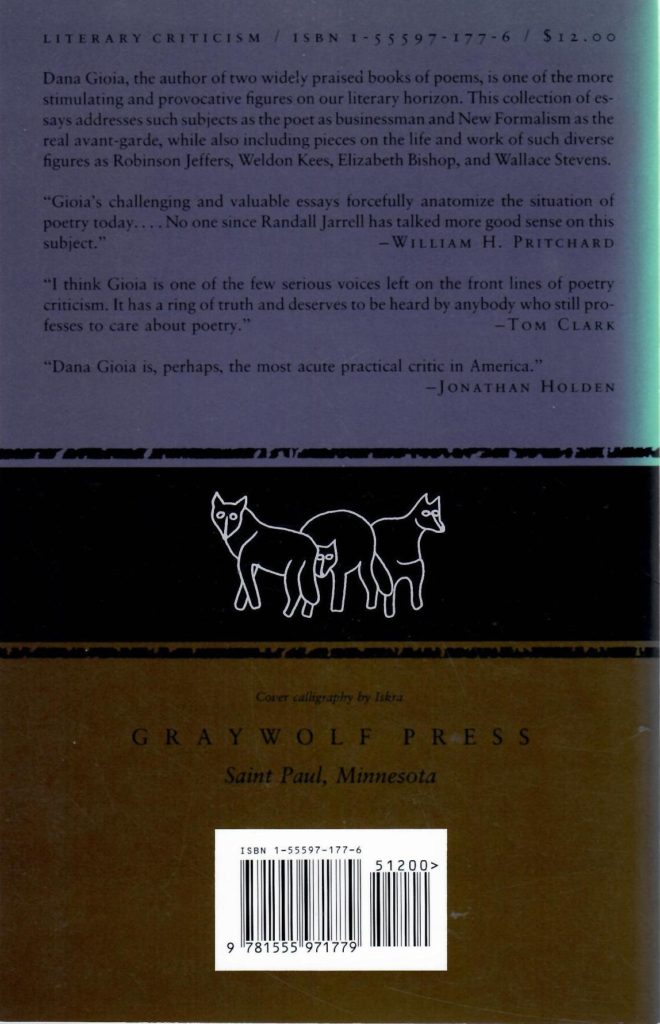
It is gratifying to be rereading these seminal essays, published by Minnesota’s own Graywolf Press in 1992, nearly thirty years later, now for me half a lifetime ago. The questions the essays raise are still valid and compelling to me, the light they cast still true. Beginning with the cosmic question of “Can Poetry Matter?” in the broadest context, considering trends and contributions of several poets, and concluding with speculation about “New Formalism” as a cultural force, the collection stands the test of time. I am grateful to Dana Gioia for putting it out into the world for all of us to consider.
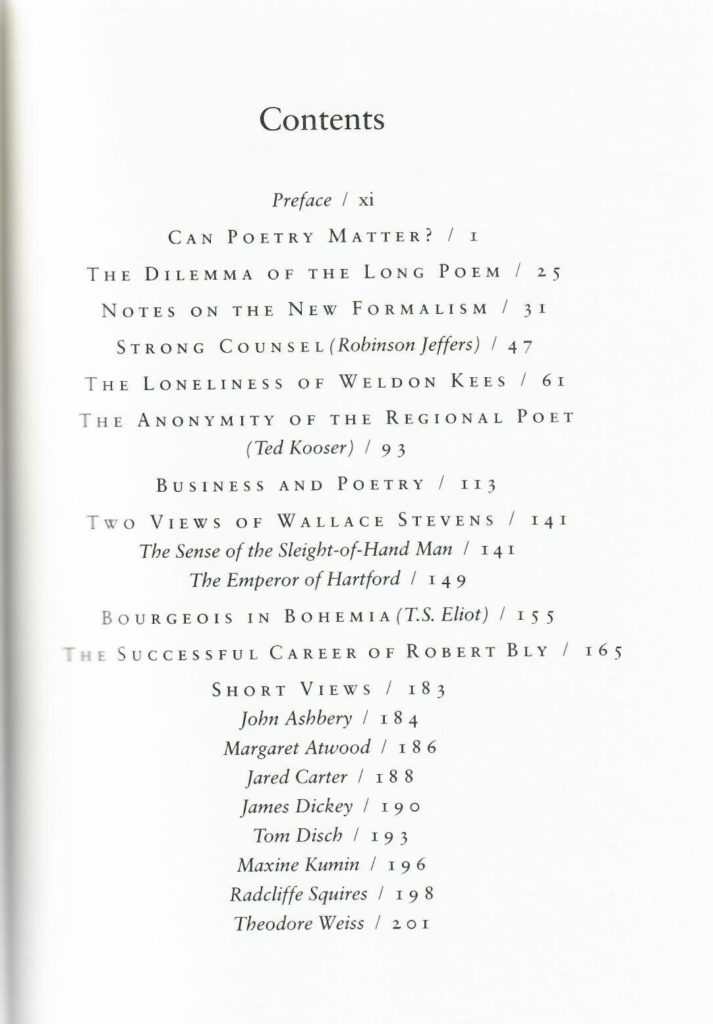
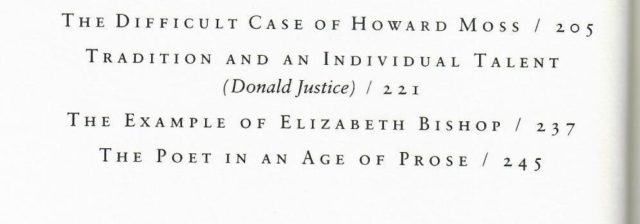
All of this month, I have been thinking about the ways that poetry has made my life better.
The generosity and startling abundance of poetry shapes my every idea of the world–how it can be at its best, and how it often is. My circle of friends and associates is much wider and richer due to poetry, the “birds of a feather” principle at work. Some friendships have been sparked directly by poetry and others have been deepened by them. Below, just a few examples of relationships not just with the poems themselves but with other people that would not be as deep, or exist at all, without a mutual love of poetry.
A woman I met on a plane more than a decade ago is now a friend; though she lives in another city, she has traveled to two of my readings, and we have shared tea and poems by other poets. Through sustained contact with certain editors, I have learned about their own poetry and the labor of love it is to edit a journal. I am lucky enough to have worked with talented young writers to study poetry, then write and publish their own. My own neighborhood is rich with other poets whose energy and talent amaze me. Through the National Poetry Writing Month activities in April and this blog, I have “met” some amazing poets in other cities and countries whom I consider friends. The City of Northfield has in many ways been open to civic and educational poetry projects, and on some of these I have had rewarding work as a volunteer. One of my dearest friends, a talented writer but not herself a poet, was moved through our conversations about the art form to write her own poem to say the unspeakable grief she felt to a friend who was dying. Another friend asked me to read a favorite poem by John Donne at her husband’s funeral, which I was honored to do.
Some mornings, being active in poetry just brings a smile I was not expecting. After the Earth Day post this year, I received a comment in the form of verse from a friend in Winona, Ted Haaland. I met Ted through the Maria W. Faust Sonnet competition, named in memory of his late wife, and I share comment here with Ted’s permission.
Dear Leslie –
– Thanks for your increasingly interesting emails. Yesterday’s inspired a little 5-liner, which I’m attempting to include herewith.Every day on which we meet,
holds further increase as a treat –
I await each day’s receipt, and view it before
I hit the AM street –
Your skills as seen make a day complete. Ted
More importantly, I, myself, am richer and have grown a more capacious mind, heart, and imagination through encountering the poetry of others, and from attempting to write it myself.
So, does poetry matter? For me, the answer is an unqualified assent.To quote from Seamus Heaney’s 1978 lecture on “Yeats as an Example?, “…he reminds you that art is intended, that it is part of the creative push of civilization itself….”
To quote from my own poem of 1990, an elegy for Joy Scantlebury (1919 to 1992), a poet three times as old as I was (more Yeats contemporary than mine, it seemed) when we met in graduate school, whose passion for life and poetry were unmatched even as she lay dying of lung cancer, “…we are free to intend/if not always to do….”
As anyone who has set out to knit a pair of socks or make a life or make a mark or write a different poem every day and share it knows, without the intention it is all a swirl of dreams or a gnat-cloud of what ifs. All the intention guarantees in following it is…something. Not always what was imagined, rarely like as good, but nevertheless real, both the product and the experience of the process of making. The blank page or screen makes daily beginners of us all. We stand before the blank canvas, pick up the brush, burn to paint the Mona Lisa. Perhaps we end up with a child’s scrawl? No matter. The vulnerability and the venturing forth are what count. Poetry is at once a cultural treasure house (daughter of the OED) and an ever-changing obstacle course we run alone but always in the best company.
Thank you, all, who shared this month of poetry appreciation with me. In closing, I would like to say a special thank you to all who elected to receive this year’s April poems via email. Your comments from time to time cheered me on, and it was an enormous help to know that you were there, listening. From “Raspberry Fools” on April 1 until “Wondering…” today, I am certain that I am lucky to know you!
All my best,
LESLIE
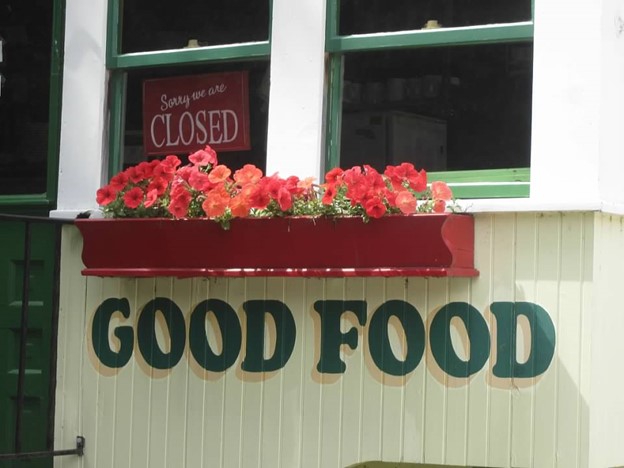
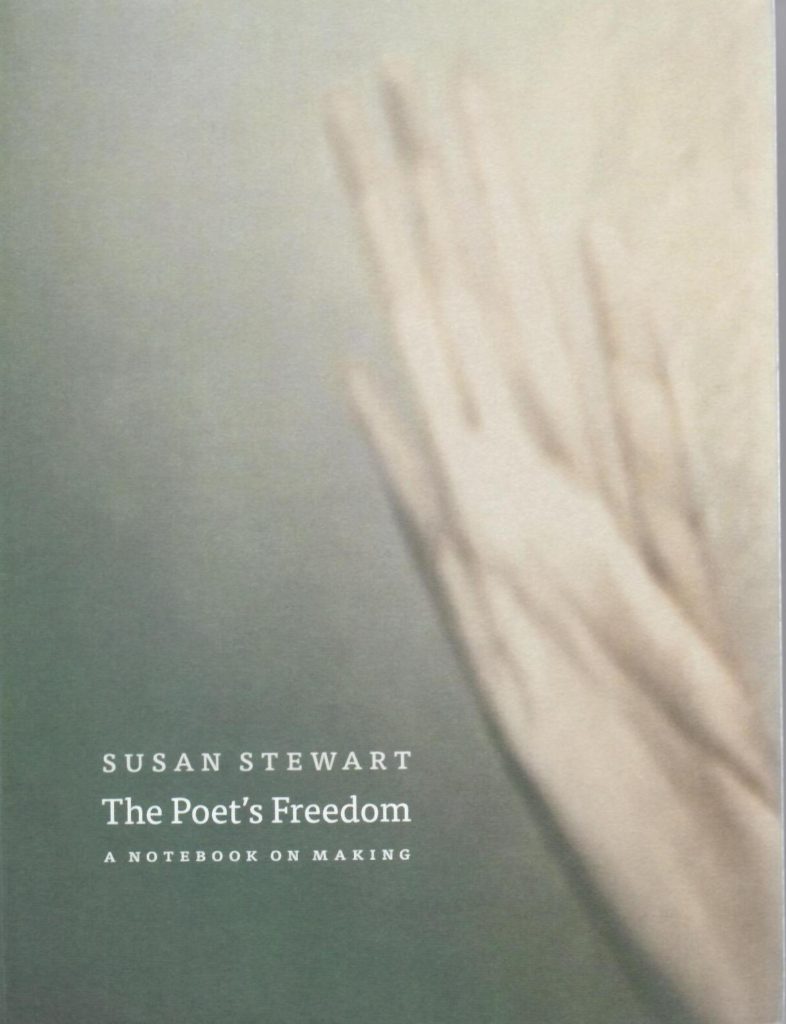
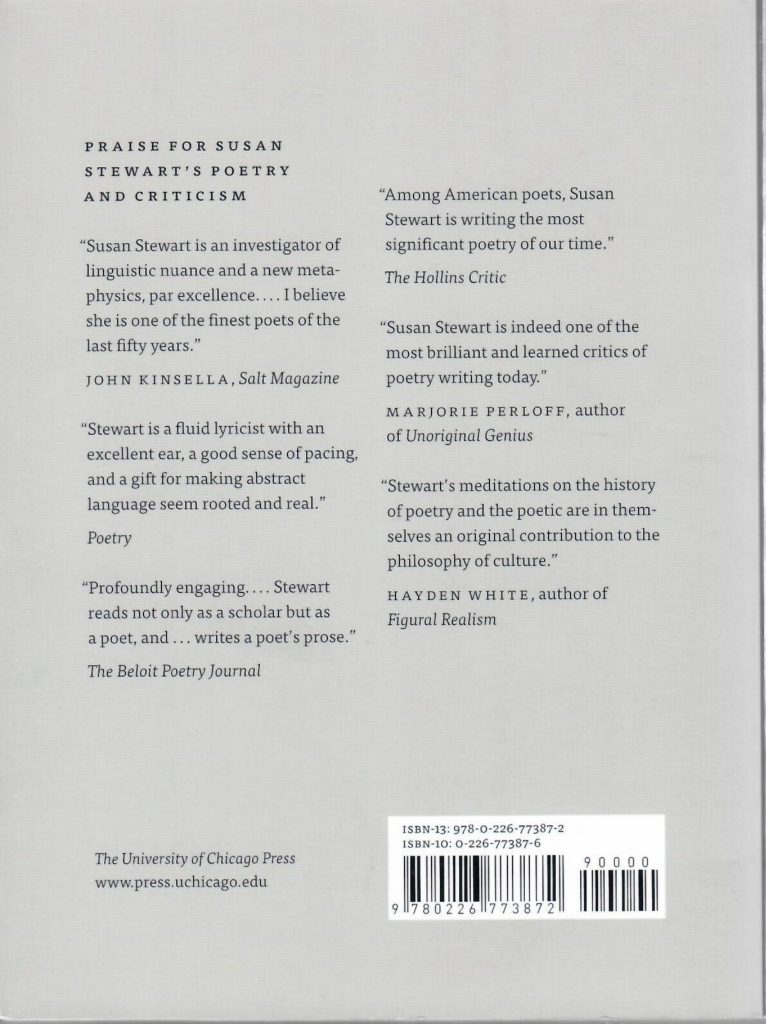
Poet Susan Stewart is also a renowned teacher and gifted critic. Her collection, The Poet’s Freedom: A Notebook on Making, (The University of Chicago Press, 2011) is a beautifully made book in terms of format, cover, paper, design, and offers eight sections of thematically linked essays to form a progression in thought, along with an envoi that recasts the prose of the prologue, “A Sand Castle,” into the form of poetry, “The Sand Castle.”
I have been reading this excellent and erudite collection slowly, beginning in 2014 and continuing. Why the glacial pace?
Stewart, (a MacArthur Fellow, among her many awards) has a brain and the training that easily inflects her thoughts and arguments on creative process through the tradition formal philosophical discourse. Me? Not so much. I freeze for a few heartbeats when confronted by names like “Hannah Arendt” or “Kant” or “Hegel” and terms like “hermeneutics” and “phenomenology”. And yet, through Stewart’s guidance, I have been able to move a few steps outside my comfort zone, identify a few new patterns and possibilities for context that I would not, surely, have discovered on my own, rather like a person accustomed to gazing at the night sky being invited by a renowned astronomer to look at the images from a radio telescope. Vastly enlarging, and a bit unsettling! The essays are also well supplied with examples from writers from Hesiod and Aristotle down to the present day, and these are welcome to me because they give me a bit more purchase in her vertiginous landscape.
To give you a summary sense of that scope, this volume has 303 pages. Of those, 19 pages offer an index; 25 pages provide a list of works cited; and 56 pages append Stewart’s own Endnotes.
And yet, I find myself engaged, paragraph by paragraph. My copy of the book can never be lent because it is overlaid with a palimpsest of soft penciled questions and sudden insights. And I think Stewart would welcome that. Here is her intentional blueprint, succinctly laid on page ix of the Acknowledgments section:
“This book bears the subtitle A Notebook on Making because I have written it out of concerns that have unfolded over time–the concerns of a poet with a vivid interest in other art forms. I therefore hope that my words will be of use to makers of many kinds, but I should say from the outset that my world of examples and references necessarily reflects by own practice and predilections. Another book entirely could have been written on these concerns by a composer of music or prose fictions, for example, and yet the ‘otherwise’ remains our common resource.
“I have framed the parts of this book as ‘entries’ and provided some room at the end for readers’ notes. And although I have spoken to those readers as if they will turn the pages continuously from start to finish, I imagine, and hope, I have made a book for perusing from time to time. I have not unwound a single story or hammered a final argument into place, for this is a book about the pleasures of making and thinking as unfinished, ongoing, means of life. My aim has been to set forward some ideas about the freedom artists have–the deep past of that freedom, and its future.”
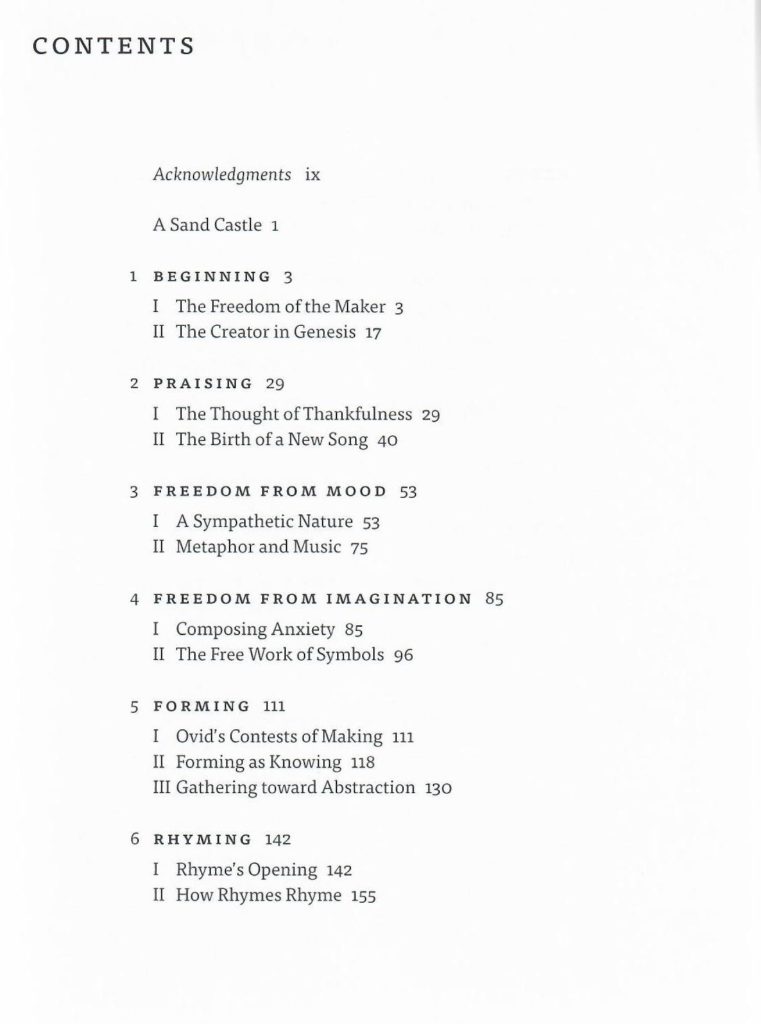
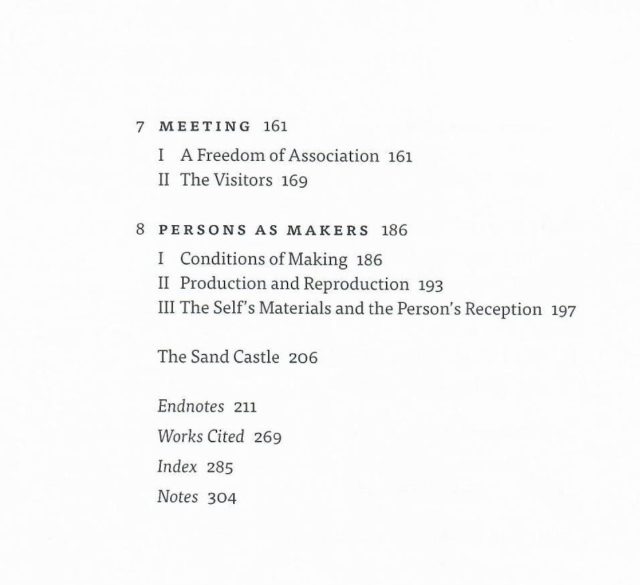
Stewart’s penultimate paragraph (concluding the essay “Persons as Makers” and the book itself) is a call to action in the wider global life we all share, in whatever way we participate in life and work. It is both an opening up, and a skillful summary of the book she has achieved.
“The freedom of the artist is not a privilege of occupation but something that anyone can exercise under certain conditions. These are a bounded time and space not dedicated to prior ends, and openness to mood and a self-composed independence from it, a willingness to let the imagination play against the determinations of form, and a commitment to choosing and judging anew. The finite experiences of art making, as untied as they can be to causes and consequences, are by definition attempts or tries, yet in their long history they give the fullest account we have of human striving and dreaming and provide the fullest arsenal of resources for action.”
If you are interested in learning more about this collection, I highly recommend seeking your own personal copy and prepare for months or years of engaged reading!
Context for Poem “Atelier”:
I drew inspiration for this poem from many sources–my own quilting, knitting, and card-making, especially, and an article in the May 2021 issue of Vanity Fair magazine, “Phantom Threads” by Leah Faye Cooper on the people and tradition of applied art/fine crafts that serve the House of Chanel in Paris. It also seemed a good pairing with Susan’s Stewart’s focus on making as applied to creating poetry.
Garden Update:
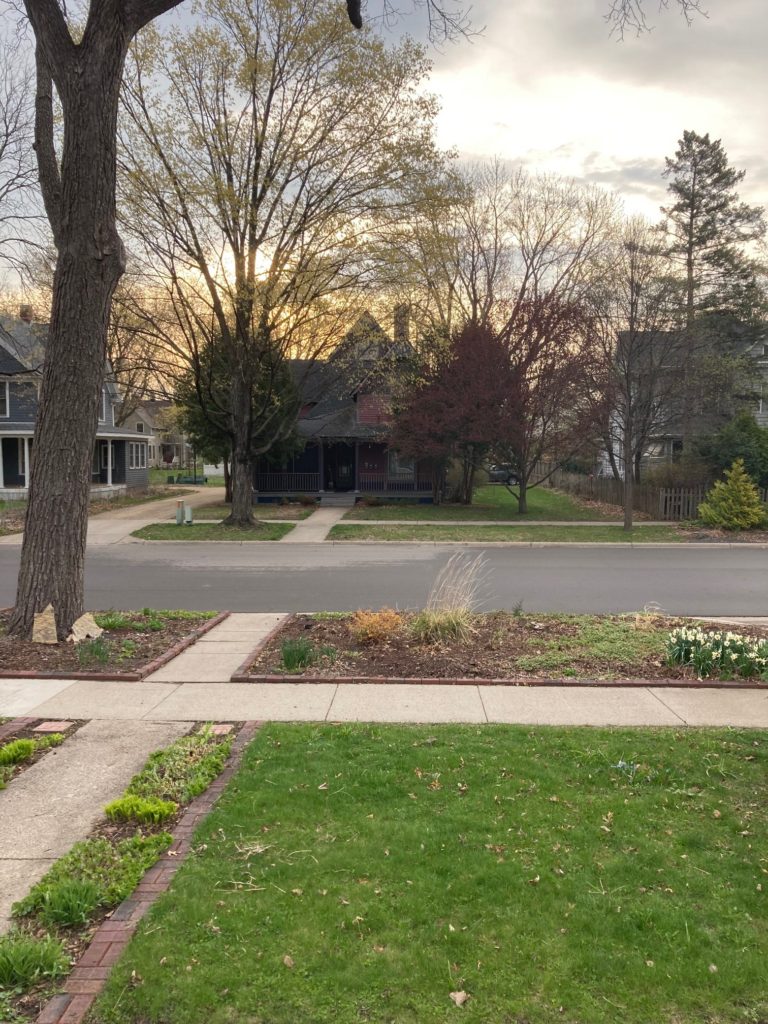
So much unfolding takes place in a Minnesota garden from April 1 to the end of the month.
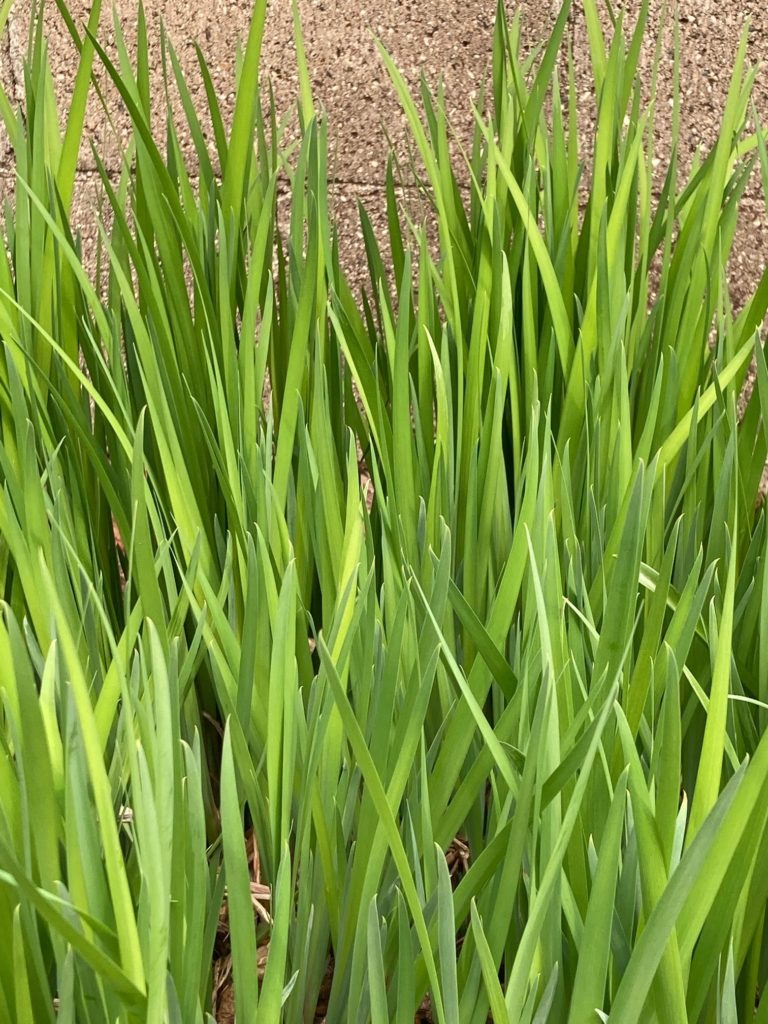
There is a leap of growth everywhere, from budding leaves to lawns, though I have not heard any lawnmowers at work yet. Bees are back, and robins, too. Cardinals are nesting, making the crows a tad grumpier than usual, and the young rabbits stare longingly through the fence at the tulips emerging. The wash of blue scilla and froth of white bloodroot has subsided as have the crocus flowers, but the bleeding hearts have begun to bloom.
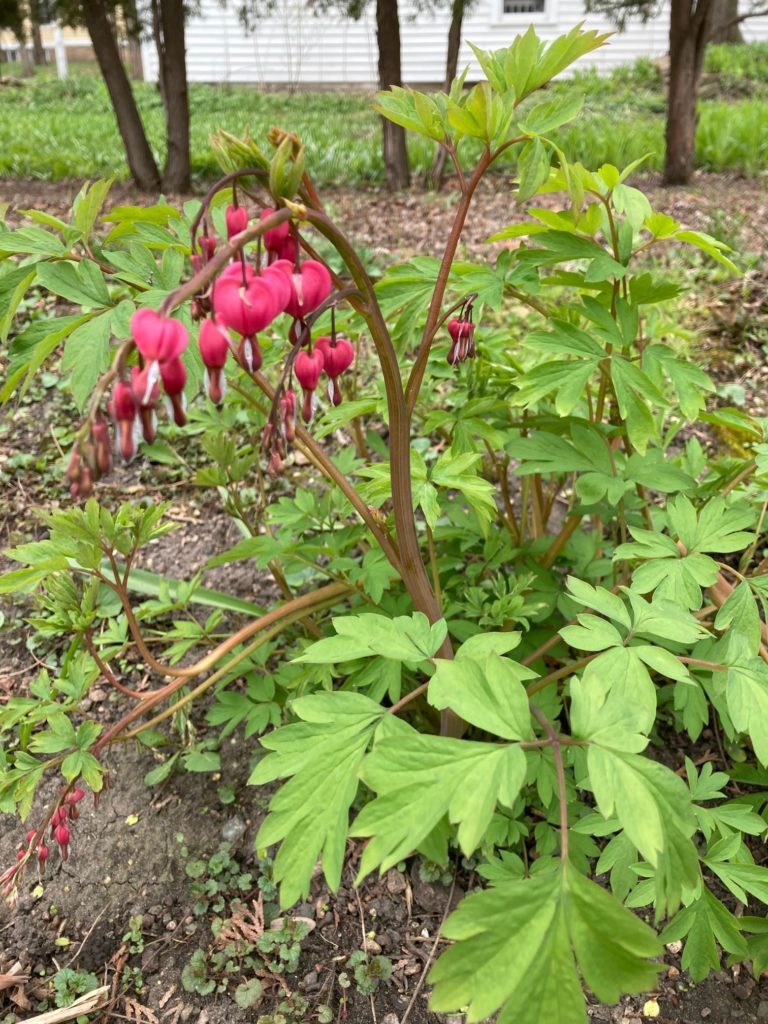
So have the robust yellow daffodils planted last year and the petite but dazzling snake lilies.
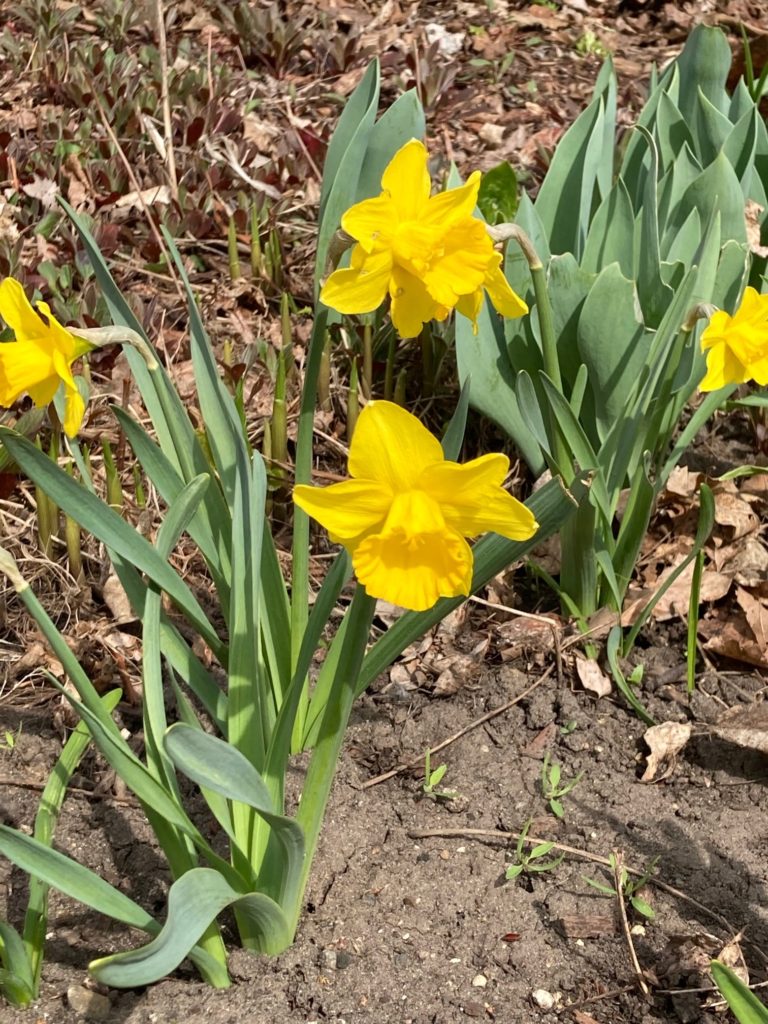
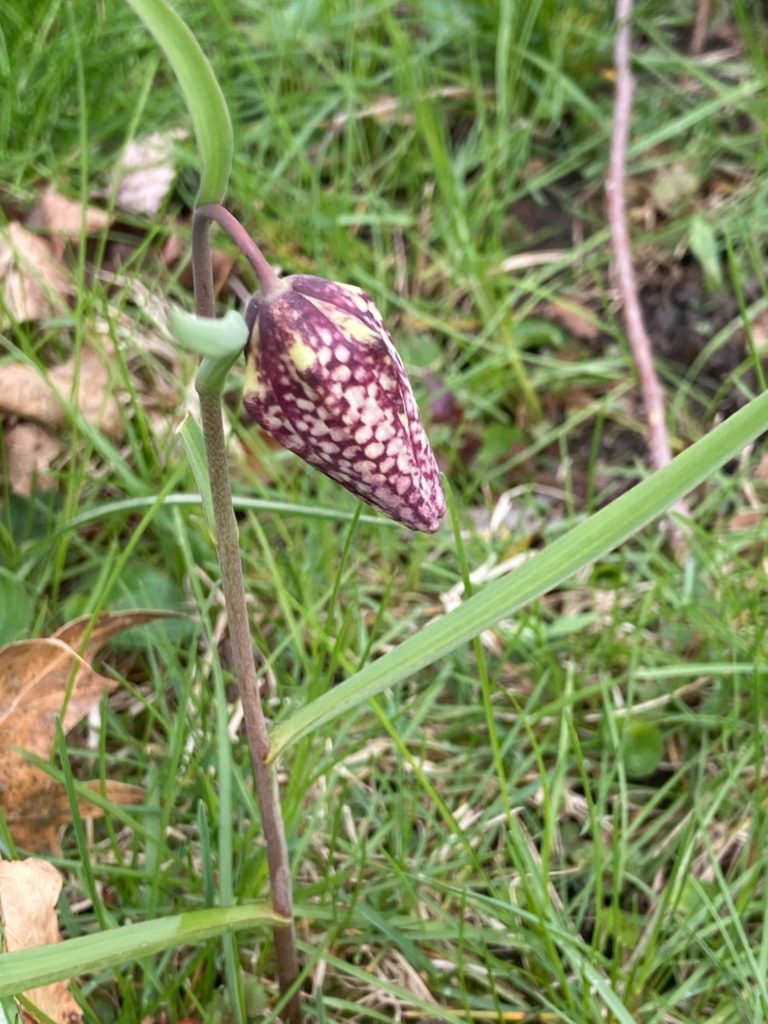
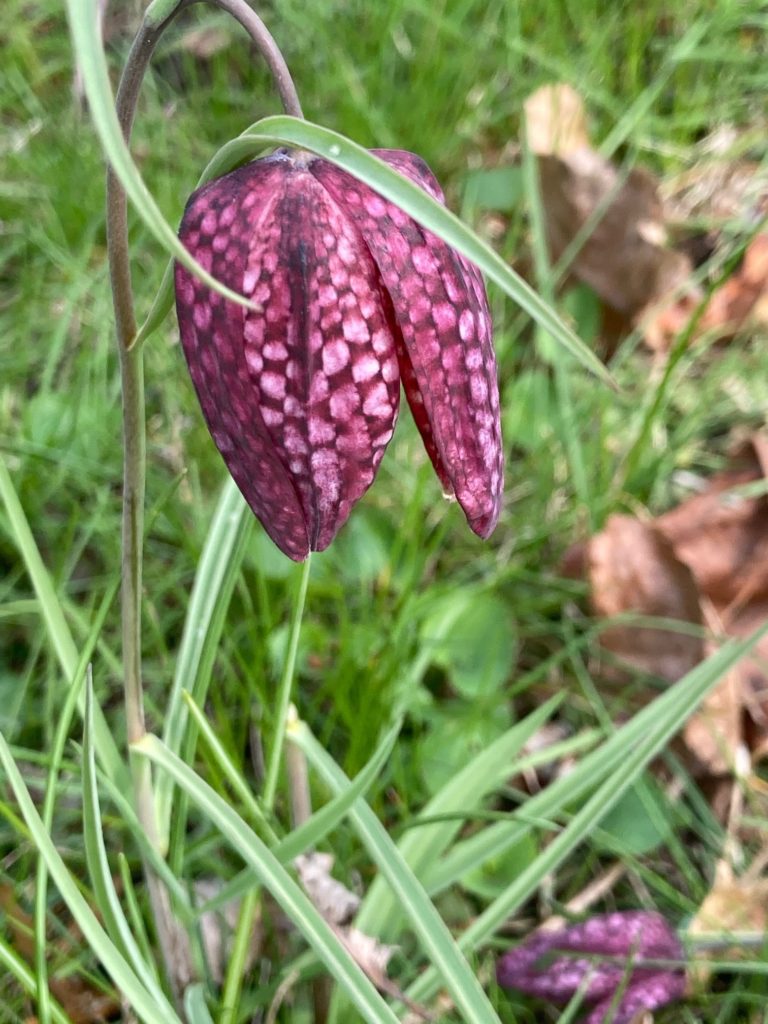
Lily of the valley and zebra iris are on the rise.
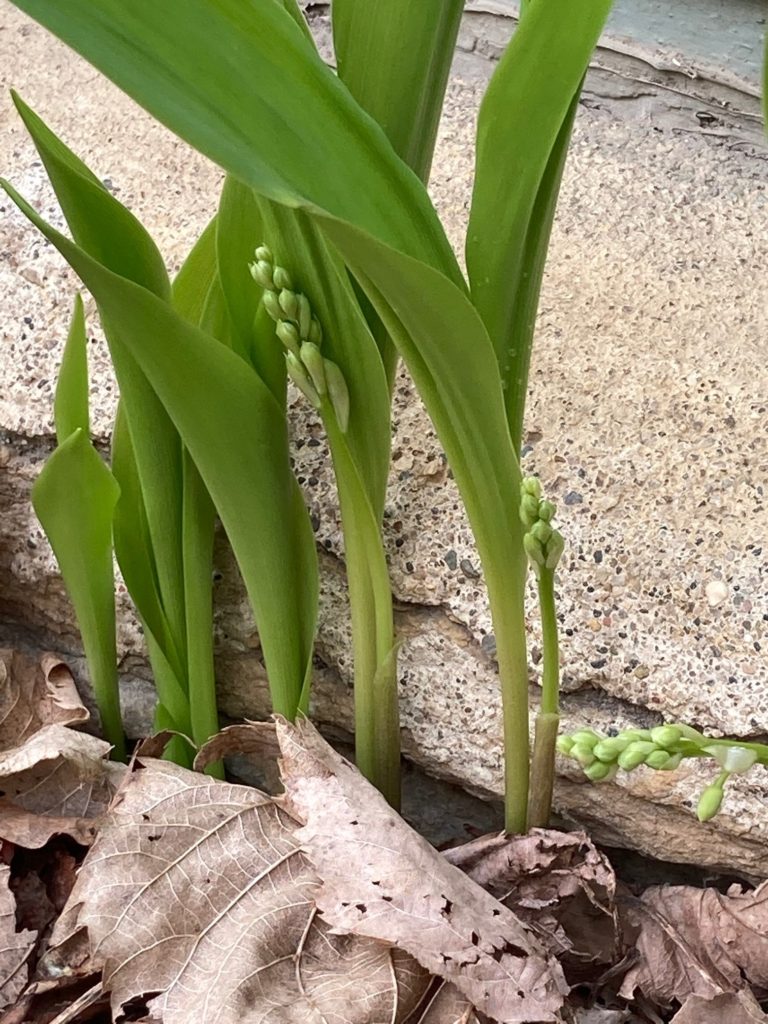
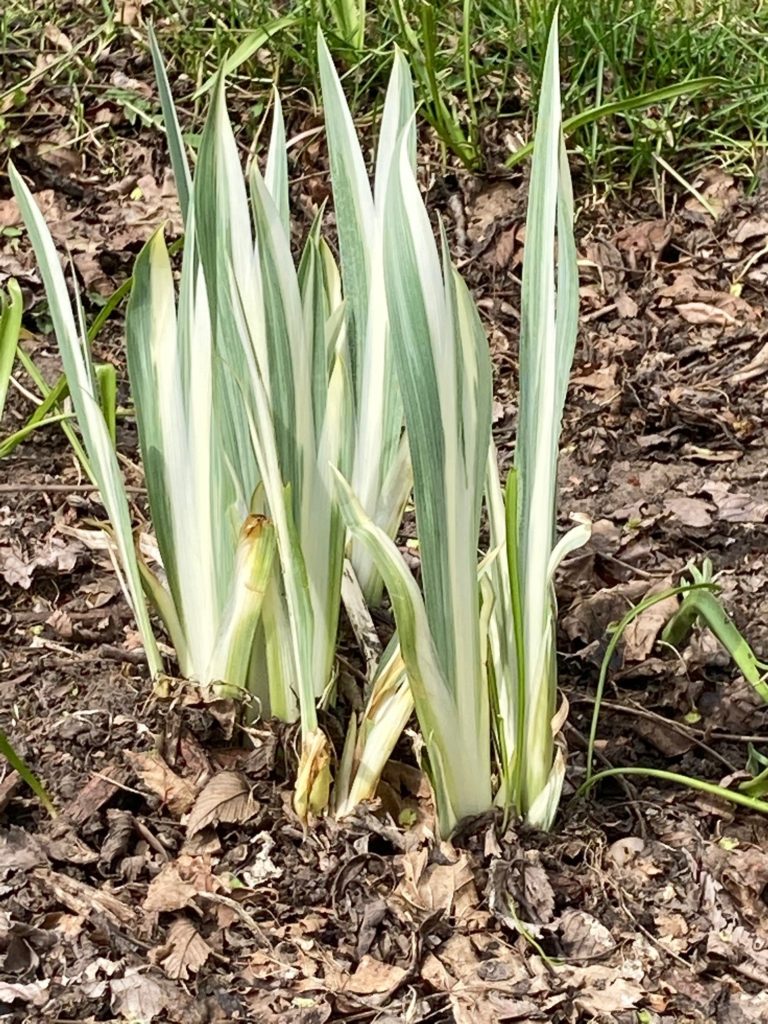
Blue, white, and the occasional red-purple violets are massing on the borders of the yard.
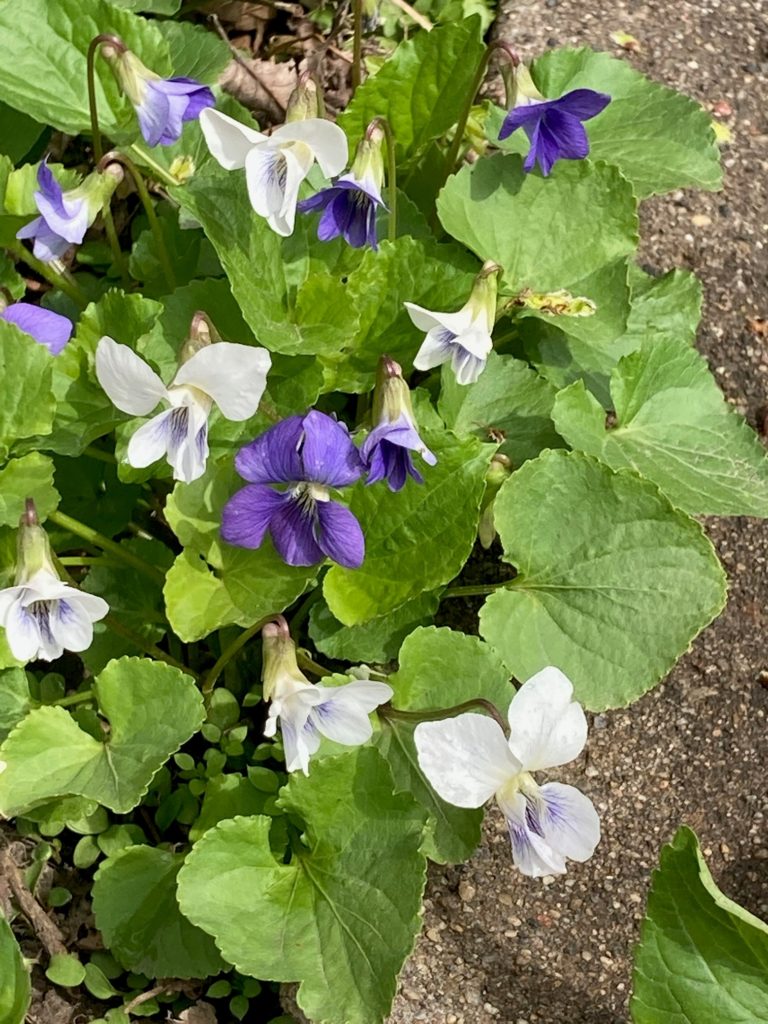
It is good to see old friends. Soon, we will have a mountain of mulch in our driveway, the wren houses will be hung up invitingly, and the plants we have over-winter inside–coral and scarlet geraniums, Chinese Red Dragon, Mercury Rising, and crimson Gerbera Daisies–will be moved outdoors again. We’ll be watch for morning glories to climb their trellises. Likewise beans and staked tomatoes. Hosta will rise up. Sunflowers will be nodding over our heads, summoning hummingbirds and goldfinches. The hammock will come out, and you will be able to find me there, with a book, in the welcome afternoon shade.
It still holds, that perennial truth: if you have a garden and a library, you have everything you need.
Once more only, until tomorrow,
LESLIE
It was (again!) in graduate school that I discovered the early, earth-shaking poetry by vigorous Irishman Seamus Heaney. His first four books had then been published, and I was especially taken with his first book, Death of a Naturalist, and North, which managed compelling lyrics by using deeply felt sense of place, as inflected through history and current events at their most violent by asking, literally and archaeologically where the bodies (of language, of national power, of people buried in the preserving Irish peat bogs during the Dark Ages) lay buried and then “digging” them up. (Indeed, his early poem, “Digging,” has the cadences and force of a personal manifesto for a life of devotion–different in form from his father and forebears, but connected to theirs–to poetry and Ireland.)
His 1995 Nobel Prize for Literature in 1995 was given “for works of lyrical beauty and ethical depth, which exalt everyday miracles and the living past.” Certainly, he deserves that citation and the world’s foremost accolade for literature. I find his prose reflections equally compelling. In this collection, Preoccupations: Selected Prose 1968-1978 (Farrar, Straus, Giroux, 1980), I wonder if the title is a sly reference to his sense of history and place, to the Ireland before the British occupation? The essays are grouped into three sections. The first contains two essays, “Mossbawn” and “Belfast”, both autobiographical evocations of place and the sense of depth and power Heaney gained from learning to read and from reading deeply and critically in the English language tradition as well as deep dives into Irish language, history, and culture –both in a small hamlet and in vigorous, riven city.
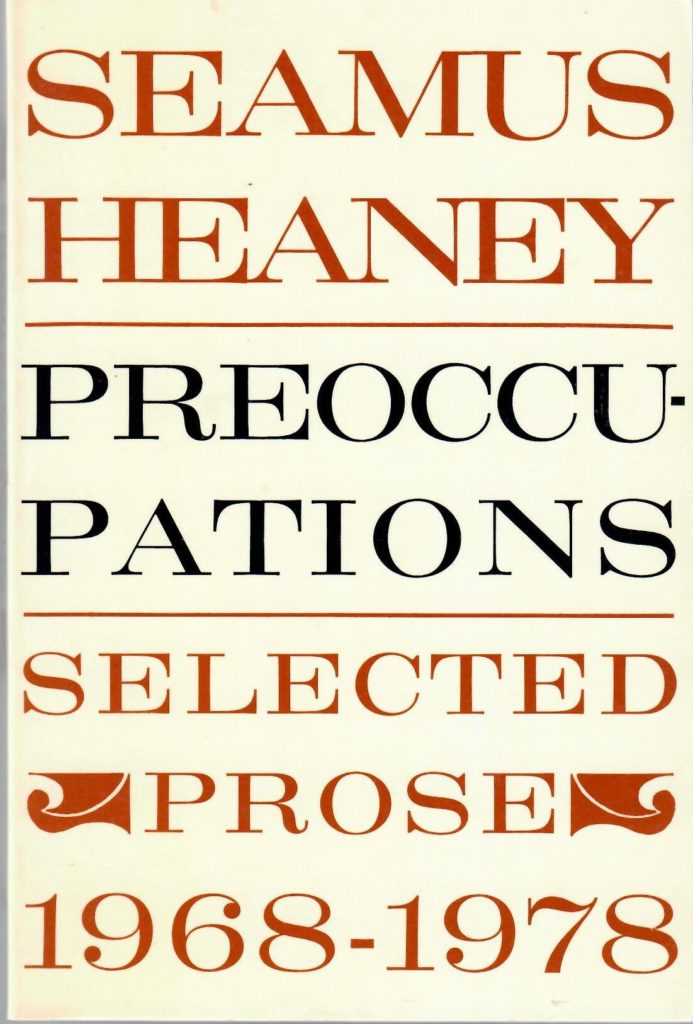
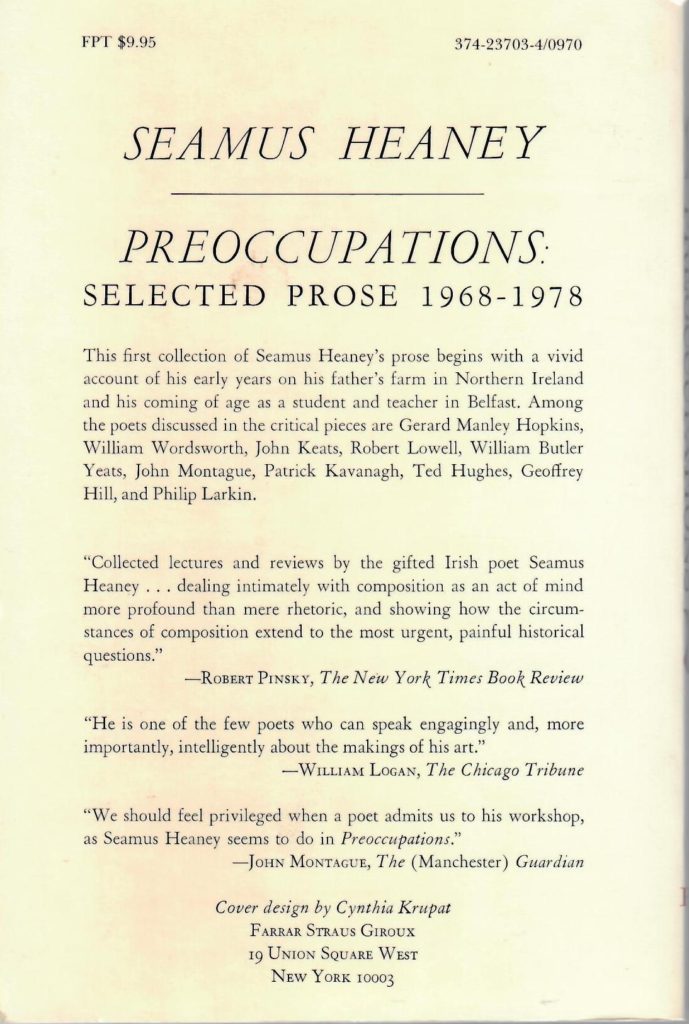
The other two sections treat the word of other poets and of poetic conventions and explorations. The longer pieces were originally conceived as lectures, and in all of them a sense of voice comes through strong and clear, scholar and practitioner. I am especially drawn to his essay “Yeats as an Example?” which elucidates Yeats’ public and private faces, as he wrestle to forge his own sense as a poet and patriot, much as Heaney did in his own era. Among the many intersections between Yeats’ life and work considered, I am still thinking about what Heaney says about the connections between Yeats’ esoteric (and sometimes just plain odd) enthusiasms and his work as a poet and public person. They were not affectations or mere silly costumes or posing, Heaney decides, but sprang from Yeats love of poetry, of making, and of forging himself as well as his poems along the lines of inspiration. To quote Heaney, “…his performances…manifested themselves in the service of creative action. The longer we think of Yeats, the more he narrows the gap which etymology has forced between mystery and mastery.”
More than forty years since their publication, these essays seem more relevant to ever. They are, as we all hope to do, aging well. Why? First, care is taken with every word, the sounds and rhythms of every phrase, with an intention to clarify rather than to obscure. And second, the generosity of spirit and depth of learning Heaney means that no topic is treated superficially or lightly; rather, each is considered in its own particulars and in its historical context. The reader comes away well paid for the investment of time spent–informed, engaged, energized, and refreshed, as well as entertained.
Context for Poem “Bamboo: Meditation on Long Ago and Far Away”:
Maybe it is all the thinking this month about poets whose work I first encountered in graduate school? Or comfort of knitting on these grey days? Or the awakening garden? In any case, today the poem inspired by the Letter “B” references all of these facets of my world. The Snow Bamboo is plausible but not, I think, true. Perhaps Tim and I will plant some in our garden this year! All the other details are, I believe, true.
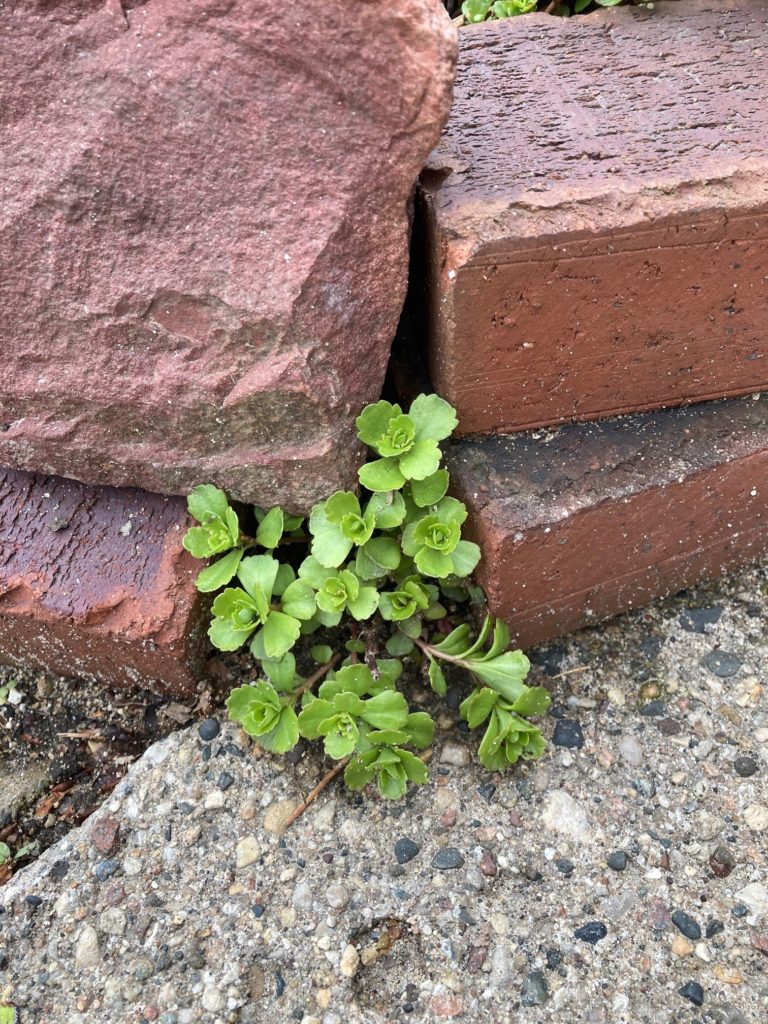
Until tomorrow,
LESLIE